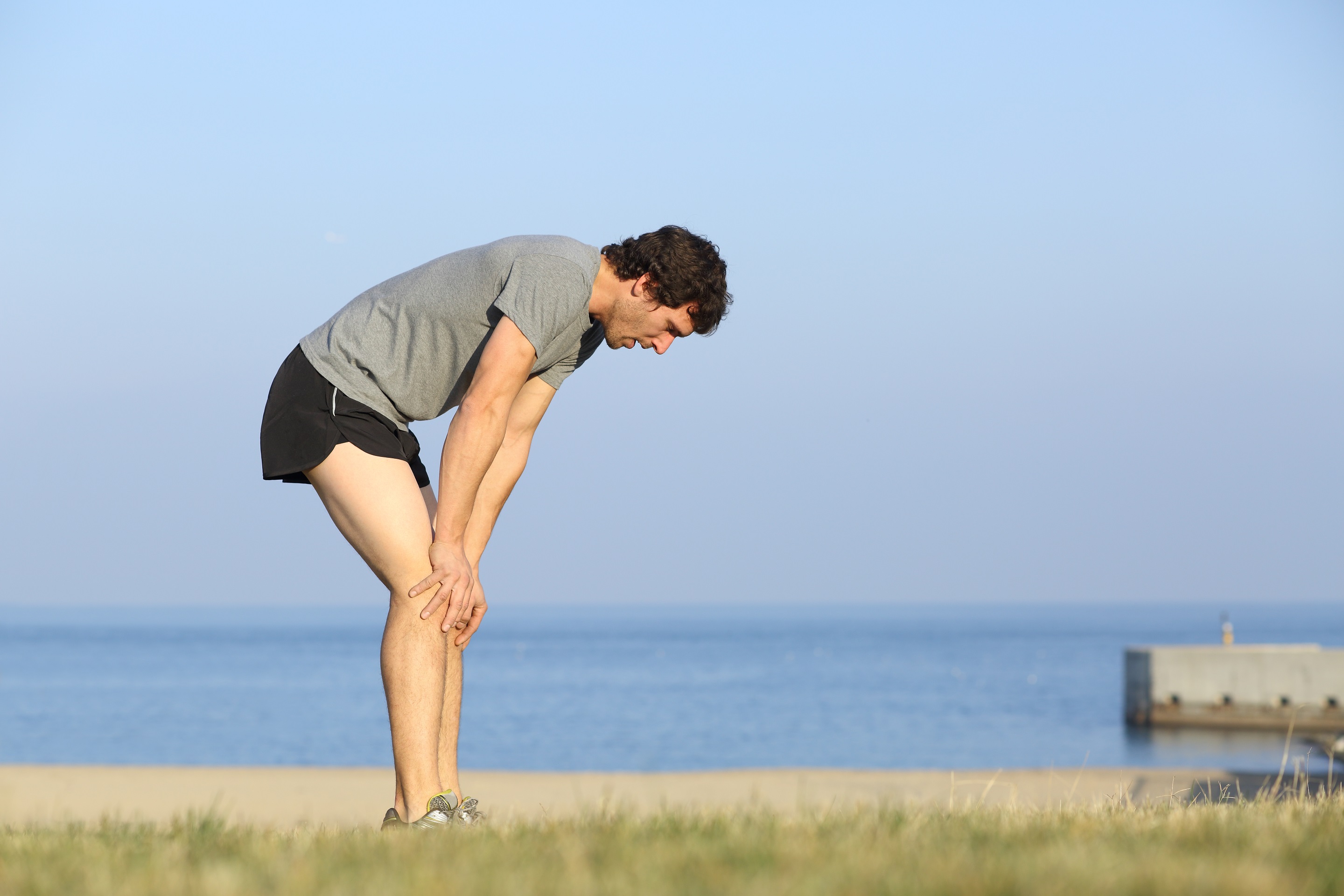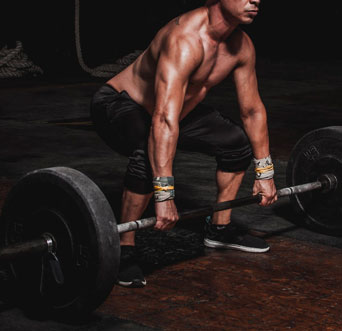Staying properly hydrated during workouts is crucial for optimal performance and preventing dehydration. Hydration plays a vital role in ensuring optimal performance and preventing dehydration during workouts.
Engaging in physical activity can cause the body to lose fluids through sweat, which can lead to dehydration if not replenished. Adequate hydration helps regulate body temperature, improve muscle function, increase energy levels, and enhance overall performance. It is essential to drink enough fluids before, during, and after workouts to maintain the body’s water balance and prevent the negative effects of dehydration.
By prioritizing hydration, individuals can maximize their workout potential and achieve their fitness goals more effectively.

Credit: blog.lifeleisure.net
The Role Of Hydration In Athletic Performance
Proper hydration plays a crucial role in maximizing athletic performance. Whether you’re an amateur athlete or a professional, staying properly hydrated before, during, and after workouts can significantly impact your performance and overall well-being. In this section, we will explore the key points regarding hydration and its effects on athletic performance.
Dehydration And Exercise Fatigue
Dehydration during workouts can lead to various negative consequences, particularly exercise fatigue. Let’s take a closer look at how dehydration affects your body during physical activity:
- Depletion of electrolytes: When you exercise, your body loses fluids through sweat, along with essential electrolytes such as sodium, potassium, and magnesium. Dehydration can disrupt the balance of these electrolytes, leading to muscle cramps, weakness, and even fainting.
- Increased heart rate: Dehydration causes a decrease in blood volume, which subsequently makes your heart work harder to pump oxygenated blood to your muscles. This increased heart rate can result in additional fatigue during exercise.
- Impaired thermoregulation: Sweating helps regulate your body temperature during workouts. However, when you’re dehydrated, your body’s ability to cool down is compromised, making it more challenging to regulate your internal temperature. This can lead to overheating and decreased exercise performance.
Impact Of Proper Hydration On Performance
On the other hand, staying properly hydrated can have significant positive effects on your athletic performance. Let’s explore the benefits of maintaining adequate hydration levels:
- Enhanced endurance: When you’re well-hydrated, your heart can efficiently pump blood to your muscles, ensuring optimal oxygen and nutrient delivery. This enables you to sustain higher energy levels and extend your exercise session, ultimately enhancing your endurance.
- Improved cognitive function: Dehydration has been shown to impair cognitive function, including concentration, alertness, and decision-making abilities. By maintaining proper hydration, you can stay mentally sharp and focused during workouts, helping you perform at your best.
- Better recovery: Hydration is essential for facilitating the recovery process after physical activity. Proper fluid intake helps transport nutrients to your muscles, aids in the removal of metabolic waste products, and reduces muscle soreness, enabling faster recovery and reduced risk of injury.
Proper hydration is vital for optimizing athletic performance. By avoiding dehydration and ensuring adequate fluid intake, you can prevent exercise fatigue, enhance endurance, improve cognitive function, and aid in post-workout recovery. Remember to listen to your body’s signals and hydrate regularly to maintain peak performance during your workouts.
Stay hydrated, stay energized!
The Science Behind Hydration During Exercise
Hydration is a crucial component of any workout routine. Proper fluid intake before, during, and after exercise ensures that the body functions optimally and helps prevent dehydration. Understanding the science behind hydration during exercise can give us valuable insights into how our body regulates fluid balance and the role electrolytes and sweating play in keeping us cool.
Understanding Fluid Balance In The Body
- Our bodies are composed of about 60% water, making hydration vital for overall health and performance during workouts.
- During exercise, the body loses water through sweating, which leads to a decrease in blood volume and can impair physical performance.
- To maintain fluid balance, it is essential to replenish the lost water by drinking enough fluids before, during, and after workouts.
Electrolytes And Their Importance
- Electrolytes are minerals in our body that carry an electric charge. They include sodium, potassium, calcium, and magnesium.
- Electrolytes play a key role in maintaining fluid balance, facilitating muscle contractions, and transmitting nerve signals.
- When we sweat, we not only lose water but also vital electrolytes. Replenishing these electrolytes is crucial for maintaining optimal performance and preventing muscle cramps.
Sweating And Its Role In Cooling The Body
- Sweating is the body’s natural mechanism for regulating body temperature during exercise.
- As sweat evaporates from our skin, it cools us down, helping to prevent overheating.
- However, excessive sweating without adequate fluid intake can lead to dehydration and an electrolyte imbalance, affecting our performance and overall well-being.
Maintaining proper hydration during workouts is of utmost importance. Understanding the science behind hydration helps us appreciate the body’s fluid balance and the essential role electrolytes and sweating play in keeping us cool. By replenishing fluids and electrolytes lost through sweating, we can optimize our performance and maximize the benefits of exercise.
Remember to drink enough fluids before, during, and after workouts to stay properly hydrated and support your body’s ability to perform at its best. So, next time you hit the gym or go for a run, don’t forget to bring along a water bottle!
Signs And Symptoms Of Dehydration
Hydration is a crucial aspect of any workout routine. Proper hydration ensures that our bodies can perform at their best and recover effectively. However, many athletes and fitness enthusiasts fail to recognize the signs and symptoms of dehydration, which can have serious consequences on both performance and overall health.
Recognizing Early Warning Signs
- Thirst: Feeling thirsty is often the first sign of dehydration. If you notice a dry mouth or an intense desire to drink fluids, it’s essential to rehydrate immediately.
- Fatigue: Dehydration can lead to fatigue and decreased energy levels. If you find yourself feeling excessively tired during a workout, it may be a result of inadequate hydration.
- Dizziness or lightheadedness: If you experience dizziness or feel lightheaded during exercise, it may be a sign of dehydration. This can significantly impact your balance and coordination.
- Dark-colored urine: Monitoring the color of your urine can provide insight into your hydration status. Dark-colored urine is a clear indication that your body needs more fluids.
- Headaches: Dehydration can cause headaches or migraines, which can be debilitating during a workout. Staying hydrated helps prevent these discomforts.
Understanding The Severity Of Dehydration
- Mild dehydration: When your body loses just 1-2% of its water weight, mild dehydration sets in. Symptoms include fatigue, dry mouth, and increased thirst. Although it may seem minor, even mild dehydration affects performance and can lead to more severe complications.
- Moderate dehydration: At 3-5% water loss, moderate dehydration occurs. Along with worsening symptoms such as increased heart rate, decreased sweating, and decreased urine output, it impairs athletic performance significantly.
- Severe dehydration: Loss of 6% or more of body water is considered severe dehydration. Symptoms include extreme thirst, rapid breathing, confusion, and even fainting. Severe dehydration requires immediate medical attention as it can be life-threatening.
How Dehydration Can Impair Athletic Performance
- Decreased endurance: Dehydration reduces your body’s ability to regulate temperature, making it harder to dissipate heat. This can lead to earlier fatigue and reduced endurance during workouts or competitions.
- Impaired cognitive function: Dehydration affects cognitive function, such as attention, concentration, and reaction time. These impairments can negatively impact athletic performance, especially in sports that require quick decision-making.
- Muscle cramps: Dehydration disrupts the balance of electrolytes in the body, leading to muscle cramps. These painful contractions can hinder performance and increase the risk of injuries.
- Slower recovery: Proper hydration supports the delivery of nutrients to muscles and the removal of waste products. Without adequate hydration, the recovery process is delayed, leading to prolonged muscle soreness and increased risk of injury.
Remember, staying properly hydrated before, during, and after workouts is crucial for reaching your fitness goals and ensuring overall well-being. Pay attention to the signs and symptoms of dehydration, and make rehydrating a priority to optimize your athletic performance.
Optimal Hydration Strategies For Workouts
Proper hydration plays a crucial role in optimizing your workout performance. By staying hydrated before, during, and after exercise, you can ensure that your body functions at its best. Here are some key guidelines to follow for optimal hydration during workouts:
Pre-Workout Hydration Guidelines
- Start hydrating well in advance: Begin drinking fluids at least two hours before your workout to ensure adequate hydration.
- Monitor urine color: Check the color of your urine as an indicator of hydration status. Aim for a pale yellow or straw-like color, which indicates proper hydration.
- Drink water regularly: Sip on water throughout the day to maintain hydration levels. Avoid waiting until you feel thirsty to drink water as thirst is not always an accurate measure of hydration needs.
- Avoid excessive caffeine or alcohol: Limit your consumption of caffeine-containing beverages like coffee and energy drinks as they can lead to dehydration. Also, minimize alcohol intake since it has diuretic effects.
Hydration During Exercise
- Hydrate before exercise: Consume 16-20 ounces of water or a sports drink 1-2 hours before your workout to ensure adequate hydration.
- Hydrate during prolonged workouts: During extended exercise sessions lasting longer than one hour, continuously replenish fluids to prevent dehydration. Aim for 7-10 ounces of fluid every 10-20 minutes.
- Choose the right fluids: For moderate workouts, water is usually sufficient. However, for intense or prolonged exercise, consider sports drinks that provide electrolytes to replenish what is lost through sweat.
- Listen to your body: Pay attention to signs of dehydration such as feeling thirsty, dry mouth, fatigue, dizziness, or dark-colored urine. If you experience any of these symptoms, hydrate immediately.
Post-Workout Rehydration Strategies
- Replenish fluids shortly after exercise: Drink 16-24 ounces of water or a sports drink within the first hour after your workout to aid in recovery and replenish lost fluids.
- Continue to hydrate: Keep sipping water throughout the day to help your body fully recover and optimize muscle repair.
- Monitor your weight: Weigh yourself before and after exercise to gauge fluid loss. Drink 16-24 ounces of fluid for every pound lost during the workout.
- Include electrolytes in your recovery: If you sweat heavily during your workout, consider consuming foods or beverages that contain electrolytes to restore the balance.
Remember, proper hydration is essential for maximizing your workout potential. Follow these hydration strategies to ensure you stay adequately hydrated before, during, and after exercise. Stay tuned for more tips on optimizing your fitness journey!
The Benefits Of Proper Hydration
**the benefits of proper hydration**
Proper hydration is essential for optimum performance during workouts. It not only helps you stay energized and focused, but also plays a crucial role in supporting your body’s functionality and recovery. In this section, we will explore the key benefits of staying properly hydrated while exercising.
Improved Endurance And Stamina
- Hydration is vital for maintaining optimal fluid balance in the body. When you are hydrated, your blood volume increases, which enhances the delivery of oxygen and nutrients to your muscles. This results in improved endurance and stamina during workouts.
- Proper hydration also helps to regulate body temperature, preventing overheating and fatigue. By preventing dehydration, you can push yourself further and perform at your best for longer periods.
Enhanced Muscle Function And Recovery
- Hydration is vital for muscle function and performance. When your muscles are adequately hydrated, they are more efficient, reducing the risk of muscle cramps and fatigue.
- Water is essential for the transportation of nutrients to your muscles, ensuring their proper functioning. It also aids in the removal of waste products, allowing your muscles to recover more quickly.
- Drinking enough water during and after workouts can help reduce muscle soreness and promote faster recovery, allowing you to get back to your training routine sooner.
Mental Acuity And Focus
- Dehydration can significantly impact your cognitive function. Studies have shown that even mild dehydration can impair concentration, alertness, and reaction times. By staying hydrated during workouts, you can maintain mental acuity and maximize your focus on the task at hand.
- Proper hydration supports brain health and improves overall cognitive function. When your brain is well-hydrated, you can think more clearly, make better decisions, and stay mentally sharp throughout your workouts.
Proper hydration offers a range of benefits during workouts. From improved endurance and muscle function to enhanced mental acuity, staying adequately hydrated is crucial for achieving optimal performance and getting the most out of your training sessions. Make sure to drink enough water before, during, and after your workouts to reap these benefits and keep your body functioning at its best.
Hydration Myths Busted
Staying hydrated during workouts is vital for maximizing performance and ensuring overall well-being. However, there are several common myths surrounding hydration that can lead to confusion and misinformation. Let’s debunk some of the most prevalent hydration myths to help you make informed choices when it comes to your hydration needs.
Drink As Much As Possible
Contrary to popular belief, the notion that you should drink as much fluid as possible during workouts is a myth. Here’s the truth:
- Drinking excessive amounts of water can lead to hyponatremia, a condition where the sodium levels in your blood become dangerously low.
- Overhydration can cause nausea, headaches, muscle cramps, and even a life-threatening situation in severe cases.
- It is crucial to find a balance and drink according to your body’s needs, rather than consuming excessive amounts of fluids.
Thirst Is A Reliable Indicator Of Hydration
While it’s true that feeling thirsty is often a sign that your body needs fluids, relying solely on thirst to guide your hydration can be misleading. Here’s why:
- Thirst is not always a reliable indicator of hydration status, especially during intense workouts or in hot weather conditions.
- By the time you feel thirsty, your body may already be mildly dehydrated.
- It is recommended to drink fluids regularly throughout your workout, even before feeling thirsty, to prevent dehydration and maintain optimal performance.
Sports Drinks Are Always The Best Option
While sports drinks can be beneficial in certain situations, they are not always the best option for hydration. Consider the following:
- Sports drinks contain electrolytes and carbohydrates, which can help replenish fluids and provide energy during intense or prolonged workouts.
- However, for short-duration workouts or low-intensity activities, water is generally sufficient to meet your hydration needs.
- Sports drinks also tend to be high in sugar and calories, so it’s essential to consider your overall dietary goals when choosing your hydration fluid.
Understanding the truth behind these hydration myths is vital for maintaining optimal hydration during workouts. Remember to drink according to your body’s needs, not just out of thirst, and consider the intensity and duration of your workout when choosing the most appropriate fluid for hydration.
Stay hydrated and enjoy your workouts to the fullest!
Choosing The Right Hydration Products
Importance Of Hydration During Workouts
Staying adequately hydrated is crucial for maintaining optimal performance during workouts. Whether you’re engaging in high-intensity interval training or a relaxing yoga session, hydration plays a significant role in supporting your body’s functions. But with so many hydration products available in the market, it can be overwhelming to choose the right one.
In this section, we will discuss the two primary options: water and sports drinks, and explore other alternatives such as coconut water and electrolyte supplements.
Water Vs. Sports Drinks
When it comes to hydration during workouts, the perennial debate remains: should you reach for water or opt for a sports drink? Below, we’ll explore the key points of each option:
- Water:
- Refreshing and easily accessible, water is a natural choice for hydration.
- It serves as an excellent means of replenishing fluids lost through sweat.
- Water is a calorie-free and cost-effective option for individuals watching their calorie intake.
- Sports drinks:
- Designed specifically for athletes, sports drinks provide a combination of carbohydrates, electrolytes, and fluids.
- Carbohydrates in sports drinks can be beneficial for individuals engaging in prolonged, high-intensity workouts, as they provide an additional energy source.
- Electrolytes in sports drinks help replenish essential minerals lost through perspiration, promoting proper muscle function.
Other Hydration Options (Coconut Water, Electrolyte Supplements)
While water and sports drinks are the go-to choices for hydration during workouts, there are other alternatives worth considering. Here are some options to diversify your hydration routine:
- Coconut water:
- Known for its refreshing taste, coconut water is a natural drink rich in electrolytes such as potassium.
- It offers a more natural and lower-calorie alternative to sports drinks, making it an attractive option for individuals seeking a lighter hydration choice.
- Electrolyte supplements:
- Electrolyte supplements come in various forms like tablets, powders, or gels, providing a concentrated dose of electrolytes.
- These supplements can be convenient for individuals with specific hydration needs or those who prefer a portable solution to incorporate into their workout routine.
Remember, choosing the right hydration product ultimately depends on your unique workout intensity, duration, and personal preferences. Experimenting with different options can help you discover what works best for your body and maximizes your performance. Stay hydrated and enjoy the benefits of improved energy and endurance during your workouts.
Incorporating Hydration Into Your Fitness Routine
Ensuring proper hydration is essential to maximize your workout performance and promote overall well-being. By incorporating hydration into your fitness routine, you can optimize your body’s function, enhance endurance, and improve recovery. Here are some key points to remember:
Developing A Hydration Plan
- Create a hydration plan tailored to your specific needs and goals. Consider factors such as your age, weight, activity level, and the duration and intensity of your workouts.
- Start by determining your baseline hydration needs. A general guideline is to drink at least eight 8-ounce glasses of water per day, but individual requirements may vary.
- Before exercising, drink 16-20 ounces of water to ensure adequate hydration. During your workout, aim to consume 7-10 ounces of water every 10-20 minutes to replenish fluid loss.
- Monitor your urine color and frequency as indicators of hydration status. Light-colored urine indicates proper hydration, while dark urine may signal dehydration.
- Adjust your hydration plan based on environmental factors. Hot and humid conditions can increase fluid loss, so be sure to drink more to compensate for sweat loss.
Hydration Tips For Different Types Of Workouts
- For cardiovascular exercises like running, cycling, or swimming, drink water before, during, and after your workout to maintain optimal hydration levels.
- If engaging in high-intensity or long-duration activities, consider consuming sports drinks that contain electrolytes to replenish sodium and other minerals lost through sweat.
- Strength training exercises may not cause as much fluid loss as cardio workouts, but it’s still important to hydrate adequately before, during, and after your session.
- When participating in team sports, remember to hydrate even during breaks. Sip on water or electrolyte-rich fluids to stay hydrated throughout the game.
- Pay attention to your body’s thirst signals. If you feel thirsty, it’s a sign that you need to drink more fluids.
Integration Of Hydration With Nutritional Strategies
- Hydration and proper nutrition go hand in hand. Include water-rich foods such as fruits and vegetables in your diet to support hydration.
- Consume fluids rich in electrolytes, such as coconut water or natural sports drinks, to replenish minerals lost during intense workouts.
- Avoid excessive intake of caffeinated or sugary beverages, as they can have a diuretic effect and dehydrate your body.
- Plan your pre-workout meal to include hydrating foods like watermelon, cucumbers, or tomatoes.
- After your workout, prioritize rehydration by drinking water and consuming foods that provide electrolytes and nutrients for recovery.
By prioritizing hydration and incorporating it into your fitness routine, you’ll enhance your performance, prevent dehydration, and support optimal recovery. Remember to personalize your hydration plan based on your individual needs and consult a healthcare professional if you have specific concerns or medical conditions.
Stay hydrated and enjoy the benefits of a well-hydrated workout!
Conclusion: The Essential Role Of Hydration In Workouts
Importance Of Consistent Hydration Habits
Consistently hydrating your body before, during, and after workouts is crucial for maintaining optimal health and performance. Adequate hydration ensures that your body functions properly, helps prevent dehydration, and enhances your overall workout experience. Here are the key points to remember:
- Dehydration can lead to fatigue, decreased cognitive function, muscle cramps, and even heat exhaustion. By adopting consistent hydration habits, you can combat these issues and stay energized throughout your workouts.
- Start hydrating well before your workout to ensure that your body is adequately hydrated. Aim to drink at least 16 ounces of water within two hours before exercising.
- During your workout, aim to drink 7-10 ounces of water every 10-20 minutes. This helps replenish lost fluids and maintains proper hydration levels.
- After your workout, replenish your body with fluids to aid in recovery. Aim to consume at least 20-24 ounces of water for every pound of body weight lost during exercise.
Long-Term Benefits Of Proper Hydration
Proper hydration isn’t just important during your workouts; it also offers long-term benefits for your overall health and well-being. Here’s why staying hydrated is essential:
- Improved performance: When your body is properly hydrated, you will likely experience improved physical and mental performance during your workouts. Hydration enhances your endurance, focus, and strength, allowing you to maximize your training sessions.
- Enhanced muscle recovery: Hydration plays a vital role in muscle recovery post-workout. It helps transport nutrients to your muscles and aids in removing waste products, reducing muscle soreness, and promoting faster recovery.
- Weight management: Staying adequately hydrated can help with weight management. Drinking water before meals can contribute to a feeling of fullness, reducing the tendency to overeat. It also supports the body’s natural metabolic processes, assisting in maintaining a healthy weight.
Maintaining Optimal Performance Through Hydration
Hydrating properly is not just a one-time thing; it requires consistent effort to maintain optimal performance. Here are some key points to consider:
- Listen to your body: Thirst is an indicator that your body needs hydration, but by the time you feel thirsty, you may already be dehydrated. Therefore, it’s crucial to drink water regularly before, during, and after your workouts to prevent dehydration.
- Consider electrolytes: Sweating during exercise results in the loss of more than just water; essential electrolytes like sodium, potassium, and magnesium are also lost. Incorporating electrolyte-rich fluids, such as sports drinks or coconut water, can help replenish these vital minerals.
- Take weather conditions into account: Environmental factors such as heat and humidity can increase your fluid requirements during workouts. Be mindful of these conditions, and adjust your hydration strategy accordingly.
Remember that staying hydrated is not only beneficial during your workouts but also contributes to your overall health. Consistent hydration habits will have a positive impact on your performance, recovery, and well-being. So, prioritize hydration and make it an essential part of your fitness routine.
Frequently Asked Questions On Importance Of Hydration During Workouts
What Is The Importance Of Hydration During Workouts?
Staying hydrated during workouts is crucial for optimal performance and recovery. It helps regulate body temperature, prevents muscle cramps, and improves overall endurance. When you sweat, you lose water and electrolytes, so replenishing fluids is essential to avoid dehydration and maintain peak performance.
How Does Proper Hydration Affect Workout Performance?
Proper hydration enhances workout performance by improving circulation, lubricating joints, and delivering nutrients to muscles. It helps sustain energy levels, prevent fatigue, and increase endurance. When adequately hydrated, your body functions optimally, allowing you to push harder, train longer, and achieve better results from your workouts.
What Are The Signs Of Dehydration During Exercise?
Dehydration can manifest through symptoms such as muscle cramps, weakness, dizziness, increased heart rate, and dark-colored urine. Feeling excessively thirsty or experiencing dry mouth can also be indicators of dehydration. It’s essential to listen to your body and replenish fluids during exercise to prevent these symptoms and potential health risks.
Conclusion
Staying hydrated is absolutely essential for maximizing your performance during workouts. Dehydration can lead to fatigue, muscle cramps, and even more serious complications. By drinking enough fluids, you ensure that your muscles are able to function properly, allowing you to push harder and achieve better results.
Additionally, staying hydrated helps regulate your body temperature, providing a more comfortable and effective workout experience. It is important to note that thirst alone is not a reliable indicator of your hydration levels, so you should be proactive in consuming fluids throughout your workout.
Whether you’re doing cardio, strength training, or any other form of exercise, maintaining proper hydration levels should always be a top priority. So grab a water bottle and make sure you’re hydrating properly before, during, and after your workouts to optimize your performance and overall health.




